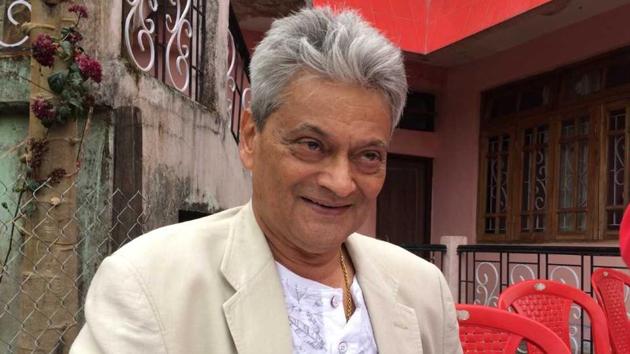Veteran Bengal planter gifts his stake in iconic Makaibari tea estate to workers
Swaraj Kumar Banerjee made the announcement at a function in the presence of workers’ representatives in the garden two weeks after he decided to quit the 150-year old tea estate.
Swaraj Kumar Banerjee, a planter whose family owned the iconic Makaibari tea estate in Darjeeling hills for more than a century, announced on Thursday he will “gift” 12% of his share in the Makaibari Tea and Trading Company to the workers.

Banerjee made the announcement at a small function in the presence of workers’ representatives in the garden two weeks after he decided to quit the 150-year old tea estate.
With Thursday’s announcement, the relation of the estate with the family that began in 1859 comes to an end as Banerjee had sold the majority of his stake to Kolkata-based Luxmi Group in 2014, but retained 12%.
The 70-year-old, who oversaw day-to-day operations at the estate from the back of his two horses, said the shares would be divided to four bodies -- Fair Trade Premium Committee, which is a joint body of the workers and the management, Jari Buti Committee, a self-help group and a voluntary organisation formed by the workers.
“These committees have done a tremendous job for years and I would hand over my shares on the first day of the Bengali New Year (April 15),” Banerjee, who is also known as Rajah, said.
“To my knowledge, none has gifted his share in the garden to worker welfare,” Banerjee said.
However, he did not reveal the value of his 12% stake in Makaibari Tea and Trading Company of which he is the chairperson.
Down the years, Makaibari has carried the signature of Darjeeling and India around the world.
Prime Minister Narendra Modi gifted Queen Elizabeth Makaibari tea when he called upon her at the Buckingham Palace in 2016.
The brew from Makaibari estate, which produces about 1 lakh kg of tea a year, was also served to participants and officials at the 2008 Beijing Olympics and 2014 Fifa World Cup in Brazil. Makaibari’s Silver Tips Imperial was sold at ₹1.17 lakh per kg in 2014.
Banerjee has two sons, who are not in the tea business. “They are not aware of my move (of gifting my share),” he said.
The announcement has come a year after an accidental fire swept through his 19th-century bungalow in March 2017 and gutted Banerjee’s prized possessions – hunting trophies, paintings and antiques, some dating back to the 1850s and a number of books – his family received down the decades from 87 countries. He and his father were born in the bungalow.
“Makaibari was my soul. I will miss it,” said Banerjee.
Banerjee has already taken his horses Chinta and Mani to Siliguri.
A majority of the workers’ representatives present at the function readily accepted the offer and a few said they need to go through the legalities.
“The announcement is noble and we welcome it,” Chanda Gurung, the secretary of Fair Trade Premium Committee which is a joint body of the workers and the management, said.
Some workers such as Mandal Chettri could not control tears when Banerjee made the announcement.
“Rajah sahib is like our guardian friend and a philosopher,” said Chettri.
Banerjee’s great-grandfather Girish Chandra Banerjee, the scion of a zamindar family from Borai around 100km from Kolkata, had taken over the garden in 1859 spread over 1,573 acres and now has 636 workers.
“I am not a tea planter but I have always been a tree planter. Of the 1,573 acres at Makaibari, we grew tea only on 550 acres. On the rest, we only planted trees. For every one acre of tea cultivated, we have two acres of tree plantation,” he said.
Banerjee, the fourth-generation owner of the garden, pioneered organic cultivation of tea back in 1988 and Maikaibari is the first fully organic tea garden in the country.
However, Banerjee does not want to quit the tea trade completely. He is planning a venture in the herbal tea business and to work among the 40,000 small tea growers of North Bengal.
“It is time for tea garden management to come out of the colonial mindset and empower the workers,” he said.
Banerjee earlier said that he wanted to gift his share to the workers, but they were not prepared.
Locals also acknowledged Banerjee’s contribution.
“Unlike in other tea gardens where workers unrest has become frequent, the workers of Makaibari Tea Estate were better off under Rajah Banerjee’s leadership,” Kumar Rai, who runs a tea stall in the locality, said.
The tea industry in north Bengal that consists of 283 gardens in Darjeeling and the foothills of Terai and Dooars regularly hit the headlines for closed gardens and worker deaths allegedly due to effects of malnutrition.




